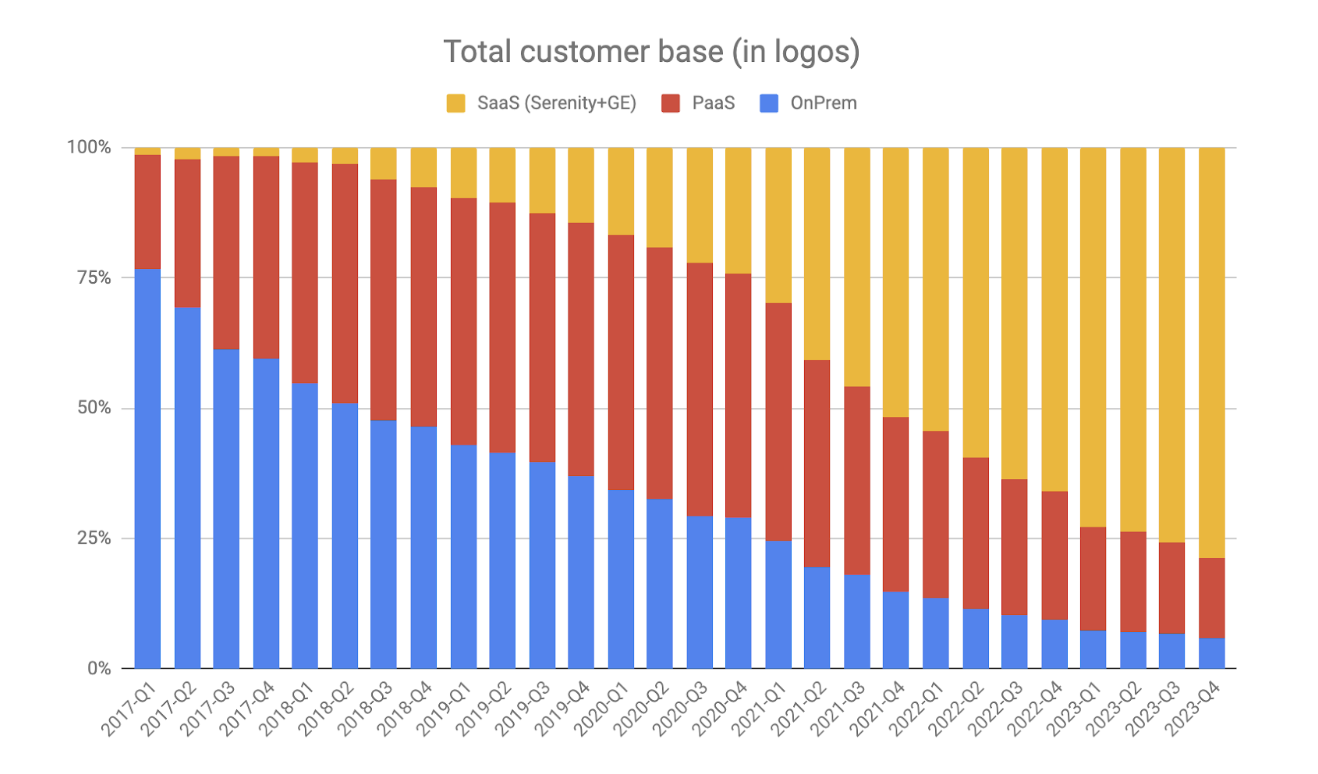Is Your Product Data Ready for Artificial Intelligence?
Discover the critical facets of data preparation necessary for effective artificial intelligence (AI) integration in business processes, and see why the quality of AI outputs is directly dependent on the integrity, structure, and diversity of the input data. Plus, you’ll learn about the advantages of structured over unstructured data for easier AI processing and best practices for organizing data files to support efficient AI operations.

1. Stability of Data Structure
AI algorithms develop their understanding and make predictions based on the patterns they detect in the data they are trained on. Consistent data formats across time ensure that once an AI system is trained, it can continue to apply its learned patterns to new data without errors or the need for reconfiguration. Changes in data formats—such as altering column names, changing data types, or reorganizing the database schema—can confuse AI models. This may lead to incorrect outputs or require additional time and resources to retrain the model with the new structure. In order to maintain a stable data structure conducive to effective AI analysis, it’s important to remember to:- Plan with the future in mind: When designing your data architecture, anticipate future needs and potential expansions. Design a scalable and adaptable structure that can accommodate foreseeable changes without fundamental overhauls.
- Implement version control and documentation: Version control systems for your databases and comprehensive documentation of any changes ensure smooth transitions and support the integrity and traceability of data modifications.
- Establish change management protocols: Create a protocol for assessing and implementing changes in the data structure. This should include steps for impact assessment, testing the changes for compatibility with existing AI systems, and provisions for updating the AI models if necessary.
- Create a system for auditing: Conduct regular audits to ensure that the data remains consistent with the expected formats and to verify that no unauthorized or unintended changes have occurred.
2. Diversity and Accuracy of Data Sources
AI algorithms benefit from a broad spectrum of data inputs as diverse data sources aid in minimizing biases and improving the accuracy of insights. Data can come from a variety of sources, including different suppliers, customer demographics, sales channels, eCommerce sites, and third-party marketplaces. This diversity is vital for a few key reasons:- Reduction of bias: AI systems can develop biases based on the data they are trained on. By integrating data from a wide array of sources, you can mitigate the risk of these biases, as the AI solution will have a more balanced view that reflects varied perspectives and conditions.
- Enhanced robustness: Diverse data sources make AI models less sensitive to anomalies in any single source, which is crucial in dynamic market environments.
- Improved predictive power: With data coming from a comprehensive mix of inputs, AI algorithms can better predict behaviors and outcomes across different customer segments and market conditions.
3. Volume of Data
The volume of data is critical for the effectiveness of AI algorithms. More data points allow AI systems to train more comprehensively, leading to more accurate and reliable outputs. A large dataset is fundamental for training AI models because it provides a comprehensive basis from which the system can learn and recognize patterns. More data points increase the likelihood of capturing all variations and nuances of the behavior or trends being analyzed, which is crucial for accurate pattern recognition. Plus, with limited data, there’s a higher risk that an AI model will overfit, meaning it performs well on training data but poorly on unseen data. A substantial volume of data not only mitigates this risk as the model can be validated and tested across a more diverse set of data points, but also increases the statistical power of the analyses, meaning findings and predictions are more likely to be valid and not due to random chance.AI Readiness Assessment
Determine your organization’s AI readiness level in this comprehensive, personalized assessment.

4. Data Structuring for AI Comprehension
AI algorithms require data in formats that they can readily process. This typically means structured data that refers to any data that adheres to a strict format, enabling easy access, search, and analysis, and would typically include:- Defined data models: Structured data operates within a defined schema—like tables with rows and columns—where each data element is clearly delineated.
- Uniform data entry: Each entry follows the same format. For example, in a CSV file, every row represents a record and each column a specific attribute of that record.
- Direct usability in AI models: Structured data can be directly fed into most AI models without requiring preliminary processing steps, facilitating smoother and more efficient data analysis.
5. Richness of Data Fields
The content of your data fields plays a significant role in the effectiveness of AI analysis. When data fields are populated with comprehensive, detailed information, AI systems can perform deeper and more nuanced analysis and more personalized recommendations. Data fields should go beyond basic identifiers like name or price to include detailed product descriptions, comprehensive titles, and extensive categorizations to enrich the dataset. Why? It’s simple; a product description that includes specifications, materials used, intended use cases, and unique features provides a robust dataset for AI to analyze, providing a better foundation for these solutions to accurately classify products, recommend similar items, and even identify market trends. Pro-tip: Your data fields should be in rich text format to get the most out of AI. Rich text formats allow for the inclusion of formatting and structural elements such as headings, lists, and bold or italicized text, which can not only help highlight important features within the data, but also allow the AI solution to leverage these elements to better understand the emphasis and hierarchy of information, improving its ability to extract relevant features and insights from textual data.6. Structuring of Input Files
The physical structure of your data files impacts the ease with which AI can process them. Tabular data formats, like CSV or excel files, provide a clear and organized way to present data where each row typically represents a single record (such as a product) and each column represents a specific attribute of that record (like price, SKU, description). This arrangement offers several advantages, including ease of access, data consistency, and increased efficiency when it comes to larger datasets. Unstructured formats such as Word documents or PDFs often contain a mix of text, images, and other elements that do not follow a predictable structure. To maximize the effectiveness of AI applications, consider these best practices for structuring data files:- Standardize data collection: Implement standardized procedures for data collection to ensure that all data is captured in a consistent format from the outset.
- Utilize data centralization technologies: Employing technologies such as a PIM for centralizing your product record can help organize and manage large chunks of information, and create a structured dataset for AI.
- Implement regular data structuring audits: Regularly review and update the structure of your data files to ensure compatibility with evolving AI technologies, including revising data schemas, updating table formats, and ensuring that all data fields are accurately and consistently captured.
- Invest in training and tools: Invest in training for your team on best practices in data management and provide them with tools that facilitate the maintenance of structured data formats.
Preparing Your Data for AI Integration
Ensuring your data is ready for AI integration involves meticulous planning and management across multiple dimensions. From maintaining a stable data structure and accumulating a sufficient volume of data to ensuring data source diversity and structuring data for optimal AI comprehension, each factor contributes significantly to the success of AI applications. By adhering to best practices in data management—such as standardizing data collection, verifying source accuracy, and enriching data fields—you can build a robust foundation for AI to not only function effectively but also drive insightful, data-driven decisions that propel your business forward. This preparation not only streamlines the integration process but also maximizes the potential benefits of AI, ensuring that your investment in this cutting-edge technology yields tangible, valuable results. Do you know if your organization has the right framework in place to support AI technology integration? Take our AI Readiness Assessment today to get your personalized readiness score, and receive actionable tips and tricks on how to get started!AI Readiness Assessment
Determine your organization’s AI readiness level in this comprehensive, personalized assessment.





























